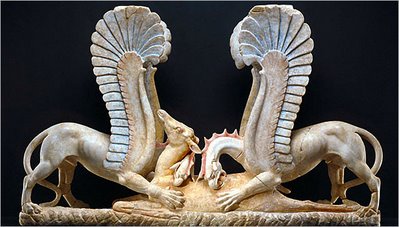
Earlier this week, the UN General Assembly unanimously adopted a resolution tabled by Greece on “The Return or Restitution of Cultural Property to their Countries of Origin”. The resolution lacks any real bite, as most resolutions of the General Assembly are symbolic in nature. However, it does indicate continued pressure by the Greeks on foreign nations to seek the return of Greece’s cultural property. Most notably, the Parthenon sculptures, or Elgin marbles as they are often referred to in the UK.
The Greek culture minister, George Voulgarakis hailed the initiative as “an exceptionally important event”. Discussing the Parthenon Marbles, he said “The adoption of this resolution in itself signals and guides the countries to help so that the antiquities from all over the world will return to their homes. Greece will always seek and strive, in that direction, for the return of the Parthenon Marbles to their rightful place”.
A great deal has been written about the Parthenon Marbles, and whether they should remain in the UK, or return to Greece. One noted scholar in this field, John Merryman, has argued that the sculptures should stay in the British Museum, because they have been resting there peacefully for nearly 200 years. The debate is an emblematic one in many ways for the two primary schools of thought on cultural policy, the cultural nationalists and internationalists. This discussion by the Greek minister of culture seems an effort to try to continue to pressure the UK into returning the sculptures. Perhaps he is learning some lessons from the Italians and their aggressive recent efforts at repatriation, though I think forcing the British Museum to share some or all of the sculptures will truly be a herculean task.

